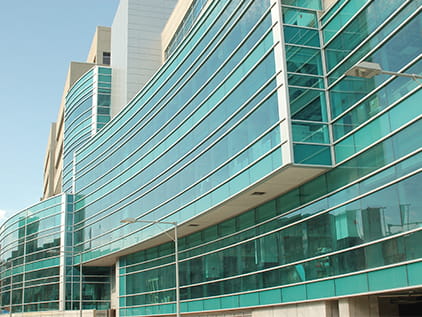- Home
- Conditions and Care
- Treatments
- Minimally Invasive and Robot-Assisted Surgery
- Minimally Invasive Heart Treatments
Minimally Invasive Surgery
Minimally Invasive Heart Treatments
The University of Kansas Health System is a leader in minimally invasive heart treatments. Our patients in Kansas City and throughout the region benefit from the expertise of our highly skilled heart surgeons and interventional specialists who work together to provide you with a safe procedure and shorter recovery.
Our health system offers the latest minimally invasive options so you can get back to the things that matter most. The University of Kansas Health System in Kansas City offers minimally invasive heart treatments for people throughout the region.
What are minimally invasive heart treatments?
Some heart conditions can be managed and treated with lifestyle changes and medications. Others require traditional surgery or open heart surgery to help improve quality of life and outcomes. But thanks to new technology, we now offer many options for less invasive procedures, including minimally invasive heart treatments.
We offer a variety of appointment types. Learn more or call 913-588-1227 to schedule now.
Who can have minimally invasive heart treatments?
For many cardiothoracic conditions, heart surgery is the preferred treatment when medication and catheter-based treatments aren't effective. Minimally invasive heart treatments offer an alternative to open heart surgery.
Your doctor will develop a treatment plan that is best suited for your condition, needs and goals. When a minimally invasive option is available, you can discuss the benefits and risks of your procedure with your doctor so you can make an informed decision about treatment.
How do minimally invasive heart treatments work?

State-of-the-art facilities
Most of our catheter-based procedures are offered at the Lynn H. Kindred, MD, Cardiac Catheterization Labs. We also have hybrid catheterization suites that can quickly convert to accommodate a minimally invasive procedure or open heart surgery without moving the patient to another room. This improves patient safety as well as surgical outcomes.
Benefits and risks of minimally invasive heart treatments
Traditional heart surgery requires an 8-10 inch incision and splitting the breastbone. You may need up to 12 weeks recovery time before resuming daily activities.
As an alternative to open heart surgery, benefits of minimally invasive heart surgery include:
- Faster recovery
- Faster return to normal activities
- Improved clinical outcomes
- Minimal pain and scarring
- Reduced blood loss and need for blood transfusions
- Reduced risk of infections
- Shorter hospital stay
What happens during minimally invasive heart treatments?
Because minimally invasive procedures typically require fewer incisions and less time on the operating table, you should enjoy a faster recovery than with traditional heart surgery. Less invasive procedures often require just 3-5 days in the hospital. Recovery can take 6 weeks to 3 months, but you should have fewer restrictions on movement. Our cardiac rehabilitation program can help you get back to normal quickly and safely.
Why choose us for minimally invasive heart treatments
- Our hospital was designated a center of excellence for robotic mitral valve repair using the da Vinci system. Teams from all over the country visit us to observe and learn from our technique.
- Our specialists work as a team. Physicians and professionals from different areas collaborate and coordinate each person's care for the best possible outcome.
- Our surgeons have been performing and refining minimally invasive surgical techniques since the early 1980s.
- We are the region's only health system with dedicated thoracic surgeons. This level of specialization and focus is important for a safe, effective procedure.
- We were the first health system in the Kansas City region to offer robotic valve repair.
- We were the first in the region to perform a totally endoscopic coronary artery bypass surgery with a robot.
- We're one of the few health systems in the area offering nonsurgical closures for PFO (patent foramen ovale) and ASD (atrial septal defect).




